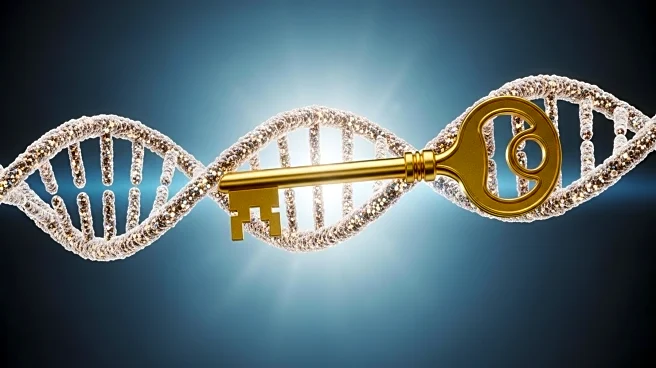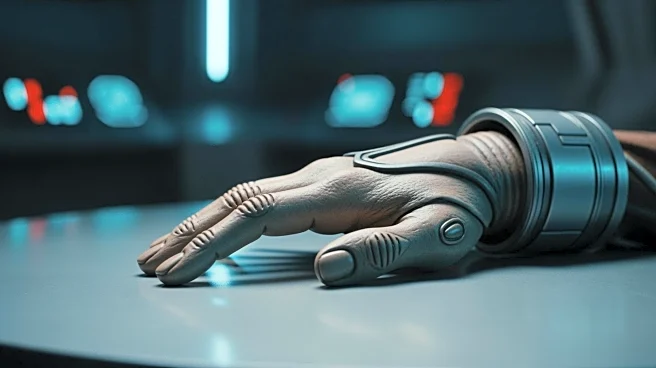What's Happening?
uniQure has announced promising results from its gene therapy AMT-130 for Huntington's disease, showing a 75% reduction in disease progression over three years in high-dose patients. The therapy, which uses an AAV5-based vector to deliver microRNA that silences the huntingtin gene, has demonstrated significant improvements in functional decline. The company plans to seek FDA approval in early 2026. The announcement led to a halt in trading of uniQure's stock due to volatility, with shares climbing from 52-week lows to the mid-teens. Financially, uniQure reported a Q2 net loss of $37.7 million but secured a $175 million loan facility from Hercules Capital to finance the potential launch of AMT-130.
Why It's Important?
The positive results from AMT-130 represent a potential breakthrough in treating Huntington's disease, a progressive and fatal neurodegenerative disorder with no current approved therapies that slow its progression. If approved, AMT-130 could become the first disease-modifying therapy for Huntington's, offering hope to approximately 40,000 patients in the U.S. alone. The financial backing from Hercules Capital indicates confidence in the therapy's approval prospects and uniQure's ability to launch it commercially. This development could significantly impact the gene therapy market, positioning uniQure as a leader in the field and potentially driving substantial revenue growth.
What's Next?
uniQure plans to file for FDA approval in Q1 2026, with a potential commercial launch of AMT-130 later that year. The company may need to conduct a larger confirmatory study post-approval, but the FDA appears open to a quicker approval path given the rarity and severity of Huntington's disease. Investors are watching whether uniQure will partner with a larger pharmaceutical company for commercialization or build its own sales force. The hiring of a Chief Commercial Officer suggests uniQure is preparing for the possibility of selling AMT-130 independently, which would require significant investment in patient identification and treatment center training.
Beyond the Headlines
The success of AMT-130 could redefine uniQure's future, transforming it from a development-stage biotech into a commercial-stage leader in gene therapy. The therapy's approval and market adoption could set a precedent for other gene therapies targeting severe diseases, potentially leading to increased investment and innovation in the field. Ethical considerations around pricing and access to such therapies may also arise, as stakeholders navigate the balance between recouping development costs and ensuring patient access.










